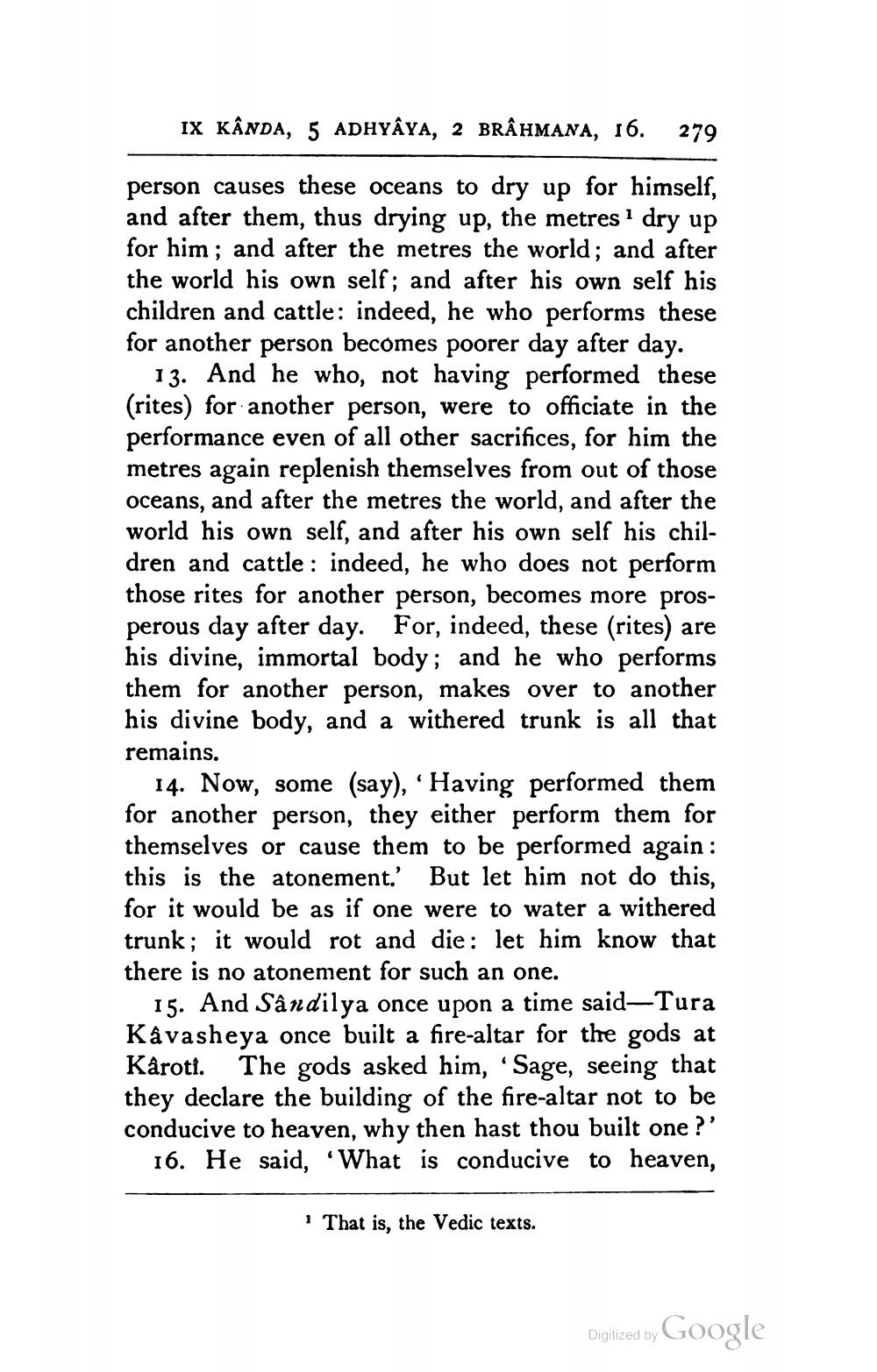________________
IX KÂnda, 5 ADHYAYA, 2 BRÂHMANA, 16.
279
person causes these oceans to dry up for himself, and after them, thus drying up, the metres ? dry up for him; and after the metres the world; and after the world his own self; and after his own self his children and cattle: indeed, he who performs these for another person becomes poorer day after day.
13. And he who, not having performed these (rites) for another person, were to officiate in the performance even of all other sacrifices, for him the metres again replenish themselves from out of those oceans, and after the metres the world, and after the world his own self, and after his own self his children and cattle : indeed, he who does not perform those rites for another person, becomes more prosperous day after day. For, indeed, these (rites) are his divine, immortal body; and he who performs them for another person, makes over to another his divine body, and a withered trunk is all that remains.
14. Now, some (say), 'Having performed them for another person, they either perform them for themselves or cause them to be performed again : this is the atonement.' But let him not do this, for it would be as if one were to water a withered trunk; it would rot and die: let him know that there is no atonement for such an one.
15. And Sândilya once upon a time said— Tura Kavasheya once built a fire-altar for the gods at Kåroti. The gods asked him, 'Sage, seeing that they declare the building of the fire-altar not to be conducive to heaven, why then hast thou built one ?'
16. He said, “What is conducive to heaven,
1 That is, the Vedic texts.
Digitized by Google




